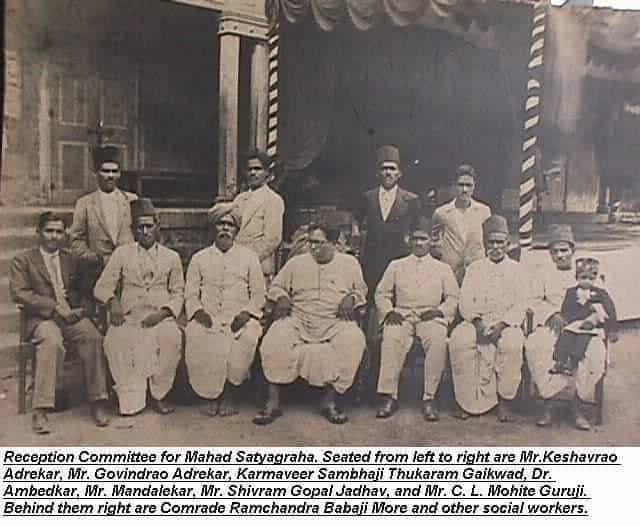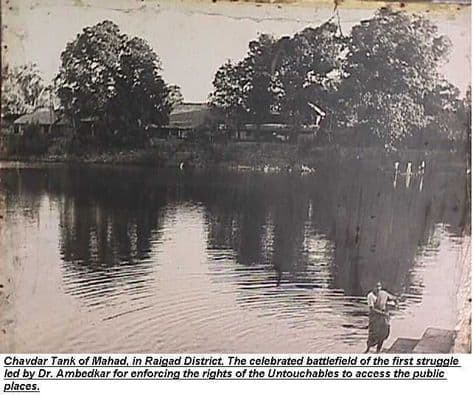On this day in 1927, Babasaheb Dr B.R. Ambedkar led a peaceful satyagraha by drinking water from Chavdar/Chowdar tank in Mahad, Maharashtra along with thousands of his followers in an act of resistance against the caste Hindus who refused to allow Dalits (then referred to as untouchables) to drink water from same water bodies as them.
March 20 is now observed as Social Empowerment Day in India.
Mahad, now in the Raigad district of Maharashtra is historically significant as an ancient port city and also for being a part of Chatrapati Shivaji’s capital, Raigad fort. The place achieved further importance after Babasaheb’s revolutionary act of defiance following the caste Hindus refusal to implement the Bole Resolution.
In 1923, a resolution moved by C.K. Bole in the Bombay Legislative Council sought to allow all the untouchable classes to use public watering places, wells and dharamshalas that were maintained through public funds. The Bombay government adopted the resolution and it was confirmed by several local bodies, including the Mahad City Council. However, the caste Hindus of the region did not let Dalits exercise their right to drink water from public water bodies.
The decade of the 1920s is considered to be an extremely significant part of Babasaheb’s journey towards achieving social justice. He began presiding over events by several local organizations of the depressed classes in smaller towns in Maharashtra. On March 19, 1927, Babasaheb attended a two-day conference organized by the depressed classes of the Kolaba district (now Raigad) at a pandal named after a local deity ‘Veereshwar’. It is said that the organizers personally reached out to large numbers of people and explained the significance of the event.
As a result, 2500 attendees from across Maharashtra and Gujarat were present at the event. It was decided at the conference that the delegates would march in a procession to the Chavdar tank and drink water from it.

On March 20, Babahsaheb led the march to the Chavdar tank along with the thousands of attendees and drank water from it. This was followed by rumours that the attendees were trying to enter the local Veereshwar temple. Many of the delegates were attacked by the upper caste Hindus while they were travelling back to their villages and some after they had returned.
A civil case was filed against Babasaheb by the caste Hindus citing that the tank was their private property. They also made plans to “purify” the tank by using cow dung and cow urine.
But Babasaheb and his followers did not back down. Another conference was planned from December 26-27 as part of the satyagraha. Although the Civil Court of Mahad passed an injunction against Babasaheb and his followers from going to the Chavdar tank, he was allowed to address the conference. On 25 December, copies of Manusmriti, the Hindu code of law were burned in protest. 25 December day is now observed as Manusmriti Dahan Diwas.

94 years down the line, the social evil of caste continues to destroy the lives of millions of Indians of oppressed castes, Dalits in particular. Harrowing incidents of Dalit men and women being beaten, harassed or murdered for only accessing water bodies are more common than we think.
Mahad Satyagraha was a landmark movement in the fight against untouchability and the struggle to reclaim public places for Dalits in India. On this social empowerment day, it is important to look back at the significance of Babasaheb’s rebellious act and how it kicked off struggles for social justice across the country as it is relevant now more than ever.

